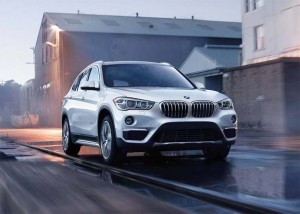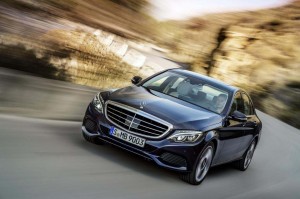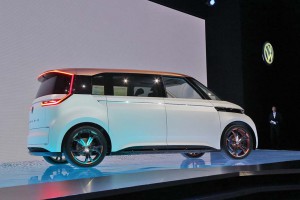
BMW delayed the launch of its various diesel models in the U.S. due to added testing, which they have passed.
For years, Volkswagen set the stage for the comeback for the diesel engine for the U.S. market and its continued growth worldwide. Now it appears to be the leader in killing it.
The German automaker’s recent scandal has not only cast doubt in the minds of potential buyers of diesels, it has other automakers reconsidering their diesel-center plans. Renault executives recently stated that they expect diesel engines to disappear … in Europe.
The announcement came after the French automaker examined the costs of meeting tougher emissions standards after the VW scandal. According to Reuters, the determination was revealed during an internal meeting earlier this summer.
At the meeting, Renault’s Chief Competitiveness Officer Thierry Bollore said the diesel investment outlook had declined, according to two people who were present, Reuters reported.
“He said we were now wondering whether diesel would survive, and that he wouldn’t have voiced such doubts even at the start of this year,” said one of the people.
“Tougher standards and testing methods will increase technology costs to the point where diesel is forced out of the market,” the source summarized Bollore as saying. A Renault spokesman declined to comment to Reuters.

Mercedes expect to sell its BlueTec diesel vehicles in the U.S., but they haven't been cleared yet by the EPA.
Renault and other automakers were heavily invested in diesels, especially after seeing the impressive gains in emissions performance VW engineers were able to produce. Many expected to find ways to replicate the results. Now that the cheating came to light, the air is out of the balloon on diesel.
In fact, VW plans to have 20 electric vehicles in its line-up by 2020, and other manufacturers have followed suit by plowing their financial and intellectual resources into developing better performing EVs that will be ready in the next five to seven years.
Diesel engines, despite the fact they cost more, offered efficiency advantages over gas engines that made the extra investment by car owners worth it the money. However, now that other automakers are realizing the gains by VW are not as easily achieved, they’re reconsidering their position, especially in light of the toughening of Euro 6 emissions rules.
By 2020, Renault expects the tougher rules will push diesel out of cars in the next B-segment, including its Clio sub compact, as well as some ‘C’ models such as the Megane hatchback, Reuters reported.
(EPA passes BMW diesels using new tougher testing. For more, Click Here.)
“Everybody is backtracking on diesel because after 2017-18 it becomes more and more expensive,” Pavan Potluri, a powertrain analyst with consulting firm IHS Automotive, told Reuters.
However, not everyone automaker has been so quick to pull the plug on diesel. Jaguar and Land Rover recently confirmed that they will be sticking their ambitious plans to introduce diesels across their portfolio in Europe and the U.S.
Mazda announced plans to introduce diesels into their U.S. line-up, and officials at the Japanese automaker have delayed making a commitment to unveiling them in light of the tougher standards as well as trying to determine if the market is there in the U.S. Diesels comprise 70% of Mazda sales in its home market of Japan.

Once the leaders in the segment, VW is moving away from diesels and focusing much of its money and energy on electric vehicles.
GM also delayed putting diesels in their wildly popular midsize truck offerings, Chevrolet Colorado and GMC Canyon, due to concerns about the stricter rules.
(Click Here for more about VW’s plans for an affordable 300-mile-plus electric vehicle.)
Diesels play a prominent role in the offerings from BMW and Mercedes-Benz globally. In fact, BMW recently received permission to sell diesels in the U.S. The maker’s engines were subject to a substantive review after it came to light that Volkswagen AG had been cheating on emissions testing with its diesels for more than a decade.
The approval is important because 6% of all BMWs sold in the U.S. are diesel-powered vehicles. Overall, diesels account for about 4% of U.S. vehicle sales annually. The EPA has yet to approve Mercedes-Benz’s diesel engines for 2017 with agency officials telling reporters only “discussions continue.”
In late spring, the U.S. Justice Department asked Daimler AG to investigate its emissions certification process for potential problems. Ultimately, Mercedes-Benz has come under fire from those who claim it has also rigged some of its BlueTec diesel models.
In fact, in the U.S. market, there 49 diesel options, according to the Diesel Technology Forum. Despite VW’s problems and tougher emissions standards, the group expects that number to 61 vehicles – 43 cars and 18 trucks – by the end of 2017.
(For more on Mazda’s diesel success in Japan and its delay in the U.S., Click Here.)
The group also collected consensus forecasts from auto and market analysts who predict that diesel cars, pickups and SUVs will comprise about seven percent of the market by 2020 or just a little more than 1 million diesel-powered cars and trucks on the road.

Renault has had problems with pessimism before. With diesel’s significant advantages over gasoline powered cars, I think technology will win out. With 80% of all cars in my second home of Palermo IT, being diesel, it’s hard to imagine such blue collar cities being able to afford the higher price and much lower mileage that a wholesale switch to Benzina [gas] would mean.
The big problem of Diesel engines has always been emissions, and the huge costs that automakers pay for “achieving” the standards.
Despite the fact, I think it’s worth to make such investments for having a more efficient engine on roads. At the end you will have a better machine inside your car hood.
The future of diesels in the passenger vehicle market really depends on how far the electric and hybrid models take over the markets. Why was Europe always the leader in diesel engines and sales, cost of ownership. Diesel fuel was always less costly and you got more bang for the buck. But with huge advances and refinement of gas power engines, the economy of old is no longer the same. Auto manufactures must meet CAFE standards and the cost of investment vs what the public will buy weights heavily. In the USA diesel is not the preferred choice but as more hybrids and batteries powered vehicles hit the market I think diesel will lose out. I would take a hybrid over diesel anytime. Now for trucks, it’s a different story.